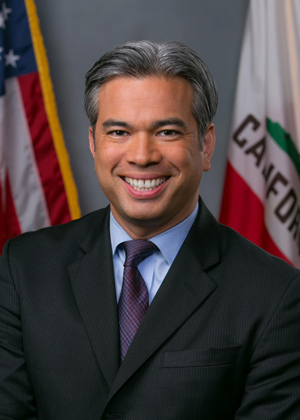September 29, 2021 - OAKLAND – California Attorney General Rob Bonta on Tuesday led a multistate coalition in submitting a comment letter commending the U.S. Department of  Health and Human Services (HHS) for taking action to reverse a Trump-era rule that would have put at risk in-home care for older adults and people with disabilities. The rule also would have undermined more than half a million workers in California’s In-Home Supportive Services (IHSS) Medicaid program, and several hundred thousand more workers nationwide. In May 2019, the Attorney General’s Office led a multistate lawsuit opposing an HHS Rule that sought to create barriers for states to deduct employee benefits and union dues from homecare workers’ paychecks, and would have made it harder for these workers to stand up together for their workplace rights and provide quality home and community-based care to those in need. The new proposed rule adopts California’s position, protecting care and the rights of the essential workers who provide critical in-home care services.
Health and Human Services (HHS) for taking action to reverse a Trump-era rule that would have put at risk in-home care for older adults and people with disabilities. The rule also would have undermined more than half a million workers in California’s In-Home Supportive Services (IHSS) Medicaid program, and several hundred thousand more workers nationwide. In May 2019, the Attorney General’s Office led a multistate lawsuit opposing an HHS Rule that sought to create barriers for states to deduct employee benefits and union dues from homecare workers’ paychecks, and would have made it harder for these workers to stand up together for their workplace rights and provide quality home and community-based care to those in need. The new proposed rule adopts California’s position, protecting care and the rights of the essential workers who provide critical in-home care services.
“Homecare workers are essential workers, and COVID-19 has shined a light on them and others in industries that are often overlooked and taken for granted,” said Attorney General Bonta. “Throughout this pandemic, in-home care providers have looked after the needs of the people in their care, which has kept older adults and people with disabilities in our communities healthy and safe at home. HHS’ proposed rule preserves these workers’ right to bargain together to improve their wages and working conditions while they continue to provide vital care services.”
The new proposed rule confirms that states may continue to deduct benefits from homecare worker paychecks that have been obtained through collective bargaining, like healthcare coverage or voluntary union dues. It recognizes that these benefits strengthen the workforce and improve care for Medicaid beneficiaries who rely on homecare workers for assistance with their personal care needs.
On July 10, 2018, the U.S. Department of Health and Human Services released a proposed rule to reinterpret Medicaid state payment requirements. The rule was primarily based on a supposed need to “eliminate a state’s ability to divert Medicaid payments away from providers.” Yet, the federal government provided no evidence to suggest that Medicaid payments were being inappropriately diverted. Under California law, Medicaid homecare workers who are hired by seniors and individuals with disabilities to provide personal care services, such as bathing, feeding, dressing, and transportation, are authorized to collectively bargain.
In November 2020, a district court ruled in favor of the Attorney General’s Office and the multistate coalition in the lawsuit challenging the rule. It found that the rule was illegally promulgated and vacated it. HHS filed a notice of appeal, but the Biden Administration asked that the case be put into abeyance pending the outcome of HHS’ rulemaking.
In submitting today’s letter, Attorney General Bonta is joined by the attorneys general of Connecticut, Illinois, Massachusetts, Oregon, and Washington.
A copy of the comment letter is available here.
Source: CA. DOJ








